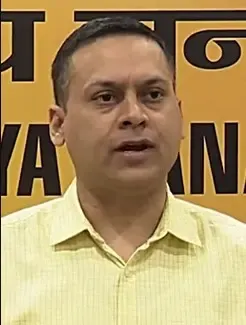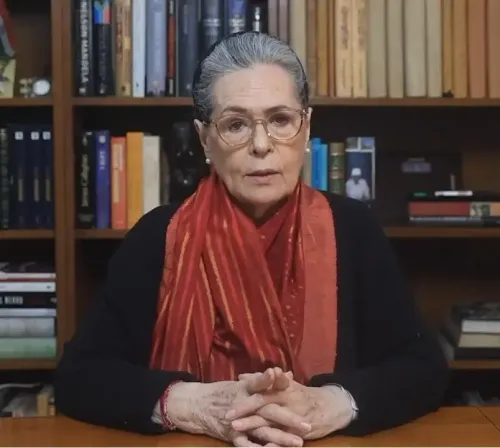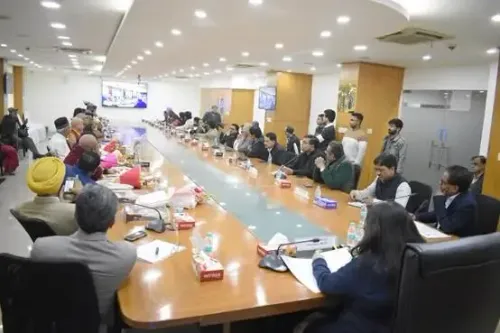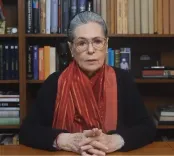Amendments to Waqf Act Introduced to Safeguard Government Properties, Centre Informs SC
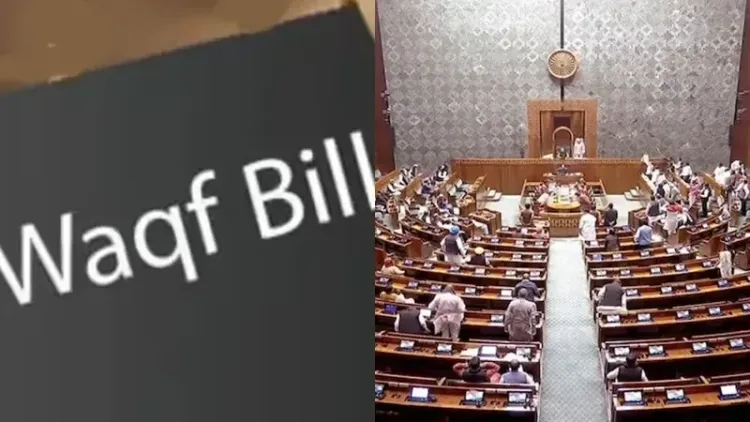
Synopsis
Key Takeaways
- Amendments to Waqf Act 1995 are aimed at preventing misuse.
- 116% rise in auqaf area since 2013 amendments.
- Waqf Boards are required to operate transparently.
- New provisions restrict creation of waqfs to valid waqf deeds.
- The amendments focus on secular governance of waqf properties.
New Delhi, Apr 25 (NationPress) The Centre, in a submitted affidavit to the Supreme Court, asserted that it has amended the Waqf Act of 1995 to curb the misuse of waqf legislation that has led to the encroachment of government properties. These amendments aim to ensure the effective administration and transparency of Waqf Boards across the nation.
"It has been reported that there is a significant misuse of waqf provisions leading to the encroachment of both private and government properties. Alarmingly, after the amendments made in 2013, there has been a 116 percent increase in the area of auqaf," stated the preliminary affidavit from the Union Ministry of Minority Affairs.
In its document presented to the apex court, the Centre noted that the majority of Waqf Boards have been operating in a non-transparent manner, failing to upload their details publicly or only providing incomplete information.
"In today's world of transparency, it is crucial that all information regarding waqf and waqf boards be made available on the Waqf Asset Management System of India (WAMPSI) portal," the affidavit argued.
The Union government indicated that previously, due to a lack of adequate safeguards, both government and private lands were incorrectly declared as waqf properties.
"The amendments in Sections 3A, 3B, and 3C address these long-standing issues. There have been shocking instances where government and private lands were declared as waqf properties," it highlighted.
According to the Centre, the Waqf (Amendment) Act, 2025 was enacted to modernize the management of waqf properties in India, promoting transparent, efficient, and inclusive practices. The reforms are focused on the secular and administrative aspects of waqf institutions, such as property management, governance structures, and record-keeping, without interfering with any core religious practices of the Islamic faith.
The affidavit emphasized that despite the requirement for mandatory registration of waqf, including 'waqf by user', individuals and organizations have made unauthorized claims over private and government lands as waqf, infringing on the property rights of citizens.
"While registration of all waqfs, including 'Waqf by user', has always been obligatory, the legal framework did not mandate a waqf deed as a prerequisite. Thus, it was necessary to register 'Waqf by user' without a waqf deed for over a century," it stated.
The Centre referred to the newly introduced Section 36(1A), indicating that a waqf can now only be established through a valid deed. It clarified that this amendment does not affect the status of existing registered waqf by user, and any previously registered property will retain its status.
Furthermore, a proviso has been added in Section 3, clarifying that the requirement for a 'waqf deed' applies prospectively from the date of the 2025 amendment, meaning any new waqf established after April 8 must comply.
"Waqfs by user registered before the amendment will still be recognized as waqf under the new proviso," the Centre noted.
The preliminary reply document indicated that prior to the introduction of the Waqf (Amendment) Act, 2025, extensive discussions were held at both executive and Parliamentary levels to understand the challenges of the previous statutory framework and to identify appropriate remedies.
The Centre emphasized that the fundamental religious right to make a dedication remains intact, and the administration of any specific waqf continues to be under the control of the mutawalli, as intended.
The affidavit asserted that it is established law that constitutional courts do not suspend statutory provisions, directly or indirectly, and will resolve the matter based on the presumption of constitutionality afforded to laws enacted by Parliament.
"While the Hon'ble Court possesses the authority to review the constitutionality of the law, at the interim stage, granting an injunction against any provision of the law would violate this presumption of constitutionality, which is a vital aspect of the balance of power among the State's branches," it added.
During the hearing on April 17, a bench led by CJI Sanjiv Khanna granted the Centre and state governments, along with Waqf Boards, a week to file their preliminary responses to petitions contesting the validity of the Waqf (Amendment) Act, 2025.
The bench, which included Justices Sanjay Kumar and K.V. Viswanathan, acknowledged the assurance from the Union government that it would not de-notify provisions regarding 'waqf by user' or incorporate non-Muslim members into the Waqf Board.
The case is set for further hearing on May 5, with CJI Khanna's bench stating that the next hearing will be preliminary, and interim orders will be issued if necessary.


